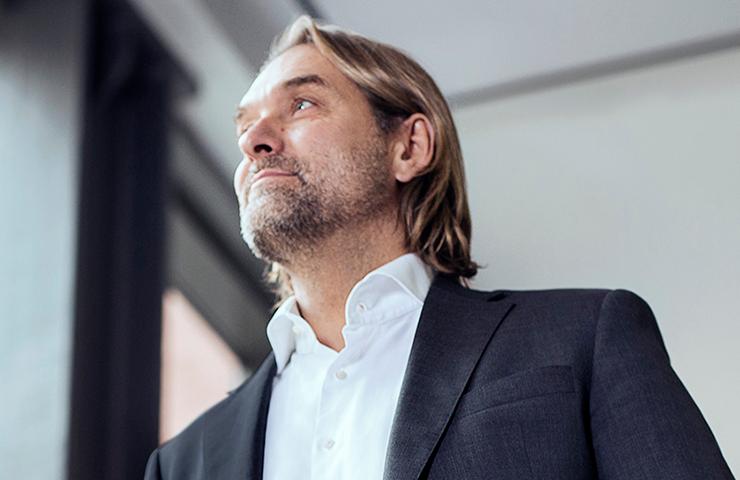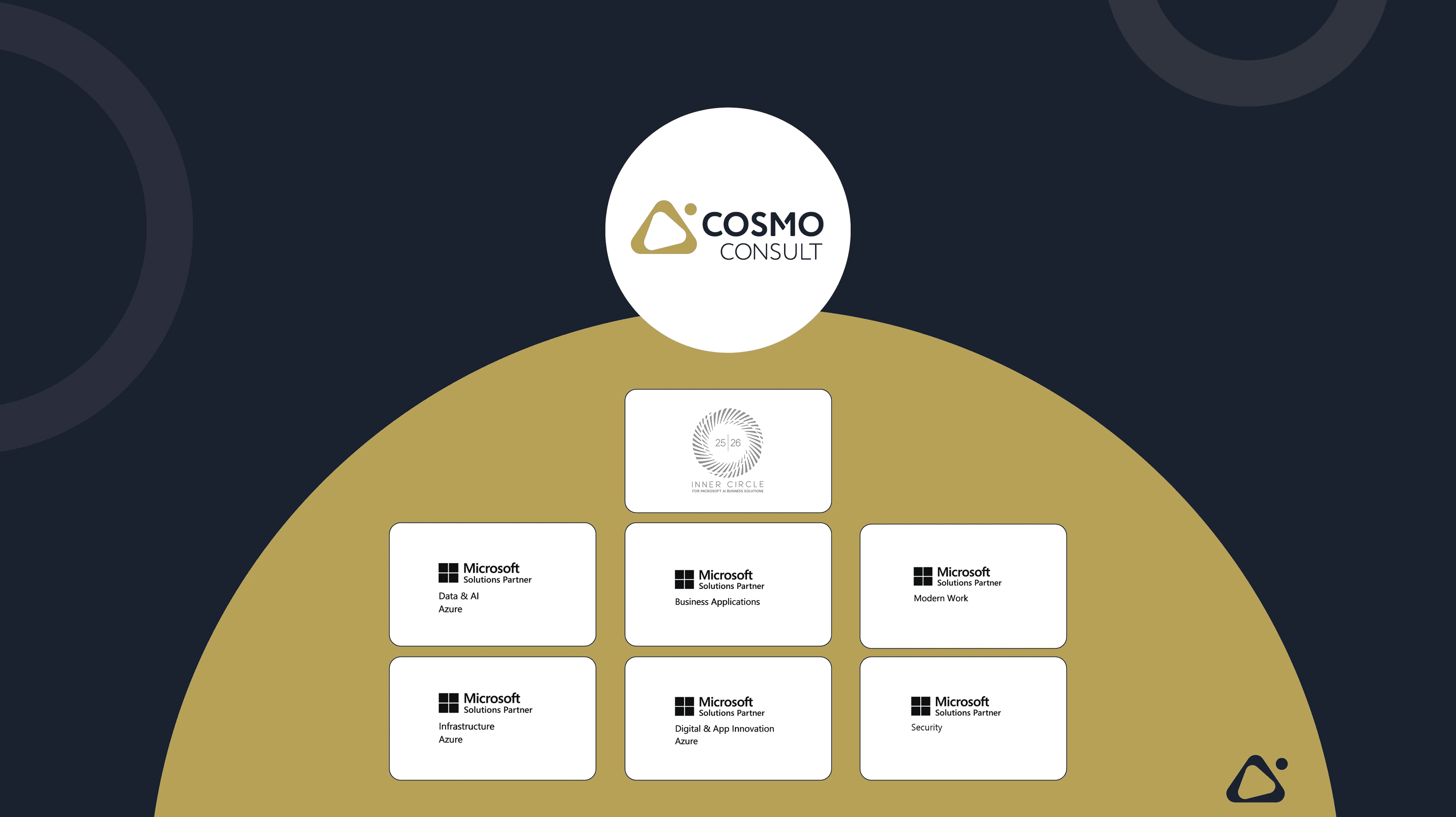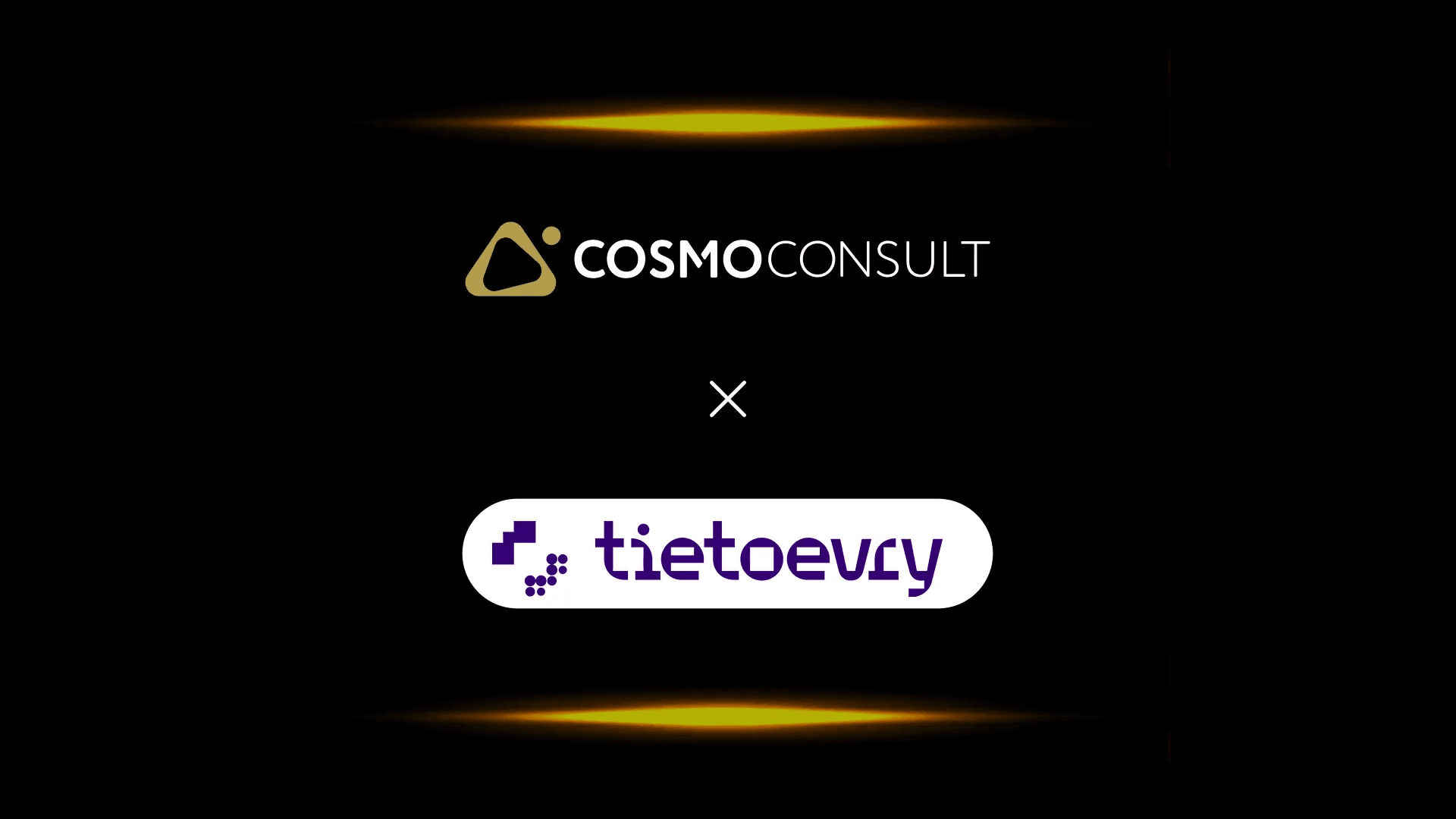
Everyone probably has a different idea of where the IT journey will take us in 2019, be it CEO, CTO, CDO or one of many other acronyms, not to mention the people who have to deal with change in their daily work. But there are people who, because of their years of IT experience and IT expertise, have a visionary view of the future. Uwe Bergmann, CEO of the Cosmo Consult Group, is one of them.
Mr. Bergmann, a new year has begun, including new trends?
No, I think the motto is rather “new year, new priorities” instead of completely new trends. The trends of digitalization and digital transformation continue to apply. There are companies that are more advanced, others are still waiting. 2019 is about implementing these topics. That also means making decisions, how do I, as a company, want to approach these issues. Should I just move ahead, or should I wait and see what might be relevant and jump on the train later. And then there are a few who hope the change will not happen. It will be rather difficult for them.
But do we differentiate between digital transformation and digitalization? Digitalization cannot be a new trend.
Exactly, digitalization is a tool of the digital transformation. Today, however, people are looking more intensively for analogue processes that can be digitized without directly linking purpose-oriented process optimizations with them. Digital transformation involves thinking about the processes as such and thinking about where and how to use the new technologies to rethink your actions, your business, your structures, your processes and your business model.
The topic of culture is another component. By that I mean, how do I create a digital mind set and how do I deal with the new technologies, how do I promote collaboration or how do I use knowledge towards the technologies that are available today? The topic of agility also needs a digital mindset: How can I react faster to new trends? If I buy a software today, it is and will be as old as it is today. In the Cloud, on the other hand, it is constantly kept up to date. If the speed of changes is considerable, I have to ask myself, will an update every two or three years suffice or had I better stay up-to-date continuously. After all, there is only one winner in business, the one who gets the job.
So, is there really only just one path?
Well, if you think of artificial intelligence or intelligent services, which are only, or at least mostly, available in the Cloud, you have to ask yourself if you want to use these services to stay on top. While the digital transformation will take a certain amount of time, strategically as well as technologically and culturally, the later you start, the harder it will be, because others may have made headway, gained speed, and you are now lagging behind.
The most dangerous thing from my perspective is actually, giving in to the illusion that the whole thing will just somehow blow over. I think this one question is important today: How do I feel responsible for my company, how do I guide it into the new era? That’s why we are already making the abstraction of AI tangible and experienceable for the customer and turn it into specific benefits. Practical scenarios on the subject of IoT are being developed together with customers and the Fraunhofer Institute.
Are there any turn-key solutions?
They exist, and we have already achieved gigantic cost savings. I’m just thinking of our shutdown management, where digitalization has such a powerful impact and creates a whole new value. But we are also constantly developing our Intelligent ERP. It does not take any status quo and calculates it dully, but recalculates for each individual situation, calculates again and again from current data and empirical values for the optimum solution. Rigid, classical programming, on the other hand, can only start from a certain basic state.
What are German companies falling short on? Although more and more software systems are using the Cloud, but that is still not enough, right?
I think a big issue is trust. Trust in technology such as self-learning systems. Then there is the issue of trust in the Cloud. So, I just read an article from Microsoft that they were voted the most trusted company in the world which is a huge asset. It is also interesting that a big international automotive group said that they are going to use the Cloud now, because if they host everything themselves, it’s far too unsecure. That is quite a statement. The opposite of the previous way of thinking.
We can even talk about cultural issues because we ourselves are our best customer. We have been working on a major transformation project ourselves for the last year and a half and are investing a great deal of time in it. That’s not just technology, it’s also a lot of mind set. Such a transformation is no picnic. We want to be pioneers there.
How do you convey your knowledge and experience to your customers?
We have something like a mission statement: we want to help our customers become the winners of the digital transformation. For this purpose, we have to translate very technological and partly abstract ideas to real benefits, for example. Everyone talks about artificial intelligence, but then they refer to things like speech and face recognition, these typical cognitive services, but there’s more to it than that. That’s why we have set up a digital business consulting team that should help our clients to think more in overall terms. We not only provide an ERP system, we also provide the entire set of Cloud and data services, artificial intelligence, IoT, modern work place, collaboration topics and classic topics such as ERP, CRM and so on. And all garnished with appropriate apps for the different industries. So, I believe, we have an all-embracing competence to actually support the digital transformation.
You spoke about cultural topics, so, is a new way of thinking, even a personal transformation, part of the digital transformation?
Yes, it takes a personal transformation, that is my firm belief. Digitalization begins in the mind and head, i.e., the management. It's not an issue I can just delegate to my Chief Digital Officer or CIO or IT manager. Digital transformation is an all-encompassing company topic. And the CEO or Managing Director is in charge of the whole company, or however it is organized.
Does that also mean breaking with traditions and parting with old habits? What would be such an old habit?
There is a wide spectrum. Because certain products, which I traditionally still offer, suddenly could no longer fit into my portfolio. Or I withdraw from certain areas to invest more in other areas. Self-disruption is another buzzword. I could create my own competing product, such as a digital counterpart to my previous products, and compete with myself before anyone else does. As I said earlier, there are a bunch of well-educated young people in Silicon Valley, or even here in Berlin, Stockholm and London, all looking for a business idea and seek to digitize your business model and push you off the market. That’s their thing.
Does COSMO CONSULT still handle ERP & Co at all?
Of course, the ERP component is the core of our business, but we view it from a different perspective today. We look at ERP more in general, we no longer consider that this is the core somewhere, but we say – Gartner, for example, calls it the postmodern ERP – that everything that makes up the customer’s business is ultimately ERP and consists of various components including data analytics components, customer engagement, moreover, there is also the core area with these classically structured data such as production and what all the financial flows are about, that’s what the auditor looks at. But in addition, there are still the topics of modern work places, cooperation, knowledge exchange or social networks. Not social media, which would be a topic of its own, but digital networks within the company, which I can expand with customers and partners to exchange information and knowledge or to comment on things. This is simply state of the art today. For many this is totally normal, but for others it is still completely abstract and absurd. There is a great need for consulting in this area.
So, does a company today need someone as an IT partner who understands both technology and business strategy, business and corporate policy and corporate culture?
Yes, definitely. And above all someone who understands something about people. Of course, as a technology company and a leader in this market segment, customers can expect high technological know-how. But our big focus is actually how do we bring the people along. Our motto “business software for people” is the program. It is important for us to use and fulfill certain basic human skills, such as enthusiasm or curiosity. Curiosity is the basis for innovation. Nurturing such things and working with them makes it easier for people to do their jobs because it just makes them more relaxed.
What is your good advice to companies for the year 2019?
You see, transformation, new ideas, new thinking, this is all an all-encompassing topic. So, I would first think about where I stand, and make a decision, which way should I go. And then, changing thinking before changing things.
COSMO CONSULT offers a digitalization check for this purpose, right?
Yes, it helps to determine the digital status of a business. In other words, digital ambition is one of our products, by which you can define what you want to achieve with digitalization, and finally, we offer a roadmap to achieve these goals. All this helps to make decisions, because rethinking is not done with a crowbar, personally and in the company. So, you have to start with those who are open, and can be enthused. Do not try to convince those who resist, but start with those who are easy to inspire. The energy that is generated in this way will pull the others along. That’s a lot easier. This creates a new culture, it creates a new flow, and suddenly it becomes somehow interesting to everyone.
Mr. Bergmann, thank you for the interview.
The interview was published in the manage-it magazine (Germany)
Keywords
More similar news articles
Found what you were looking for?
Start your intelligent search now



